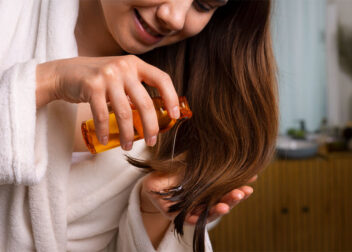15 Home Remedies for Acne Scars and Dark Spots
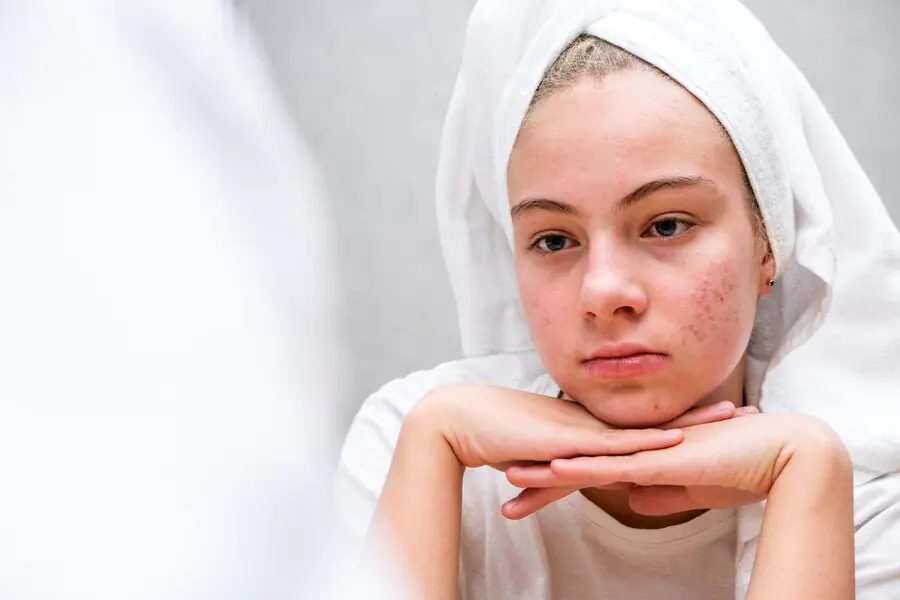
Home Remedies for Acne: Acne is one of the most common skin problems in the world around. In an overall estimation, almost 85% of young adults are affected by this.
Traditional acne treatments like niacinamide, salicylic acid, or benzoyl peroxide are considered to be the most effective solutions for acne.
But, are they really worth having?? Because they’re really expensive and can have undesirable side effects, like – redness, dryness, irritation, or some kind of possible infection.
As a result, many people are headed towards home remedies for acne to cure them naturally. Almost 77% of acne patients are adopting natural remedies.
What are the causes of acne?
Acne starts appearing on your face when the pores of your skin get clogged with oil, dirt and dead skin cells.
Each and every pore is connected to a sebaceous gland that regularly produces an oily substance called sebum. Excessive sebum can plug the pores resulting in the tremendous growth of a bacteria known as Propionibacterium acnes, or we can say P. acnes.
Home remedies for acne free glowing skin
Your immunity booster white blood cells attack these P. acnes, which leads to skin inflammation and acne. Though, the causes are not the same for everyone. In some cases, acne is more severe than others, but generally, symptoms include pimples, whiteheads, and blackheads.
Many factors that are responsible for the development of acne, include:
- · genetics
- · diet
- · hormone changes
- · infections
- · stress
Yes, no doubt! Standard clinical treatments are highly effective for reducing acne. But home remedies for acne are easier, cheaper, painless and side effects free solutions. We’ve listed out 15 home remedies for acne and to-dos.
So, what are you waiting for?? Let’s get through the post-
1. Tea tree oil
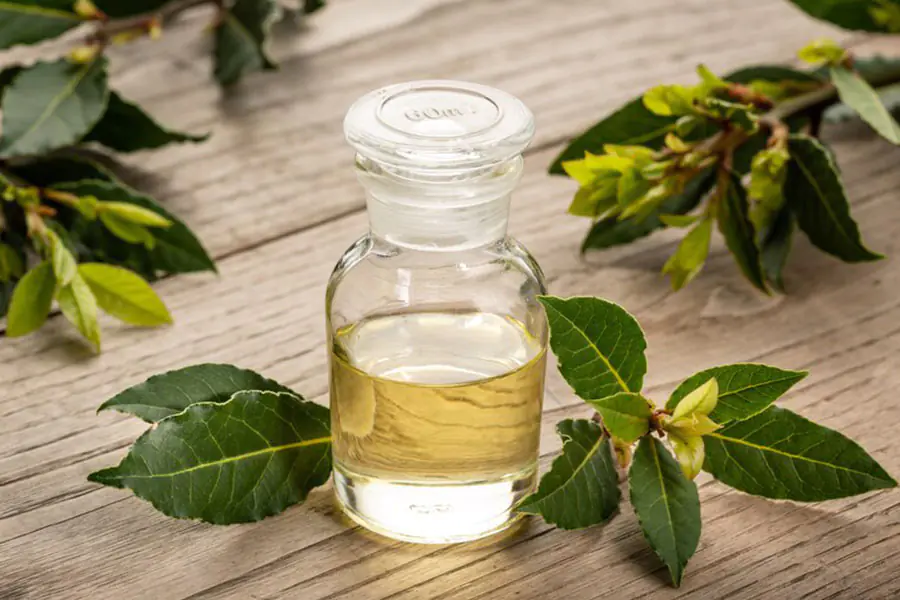
Tea tree oil is a natural anti-inflammatory and antibacterial. It is likely to kill P. acnes, the bacteria responsible for causing acne.
Tea tree oil’s anti-inflammatory properties can reduce the swelling and redness of pimples.
It is found that tea tree oil products surprisingly reduce the number of acne sores with mild to moderate acne.
The tea tree oil may work equals to 5 percent benzoyl peroxide, which is a common OTC acne medication.
A range of tea tree oil products is available online.
How to use tea tree oil?
You can apply tea tree extract to your acne with gels, creams, or essential oils.
If you use essential oils then always dilute them in a carrier oil.
2. Jojoba oil
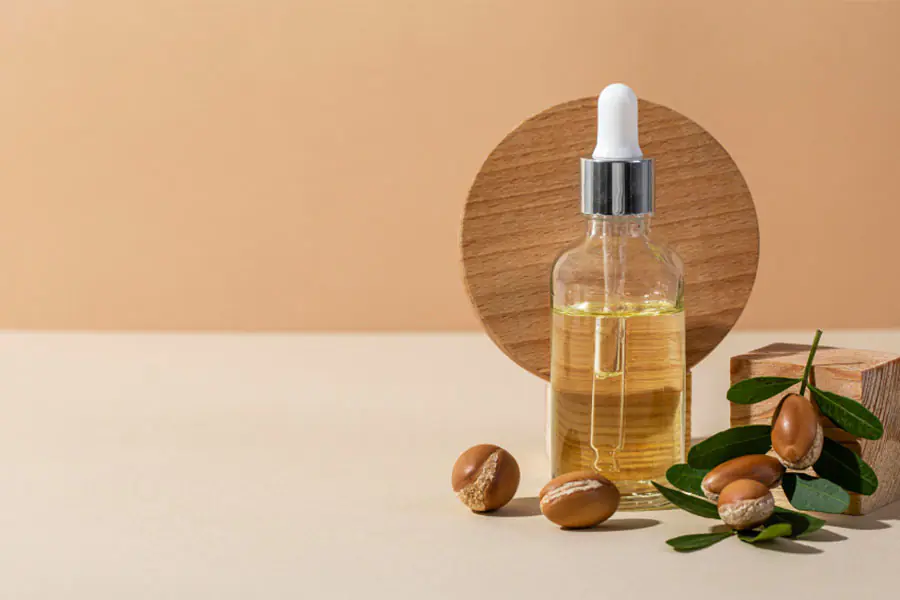
Jojoba oil is a natural, wax-like substance extracted from the seeds of the jojoba shrub.
The waxy substances in jojoba oil help in repairing damaged skin, resulting in speed up wound healing, along with acne lesions.
Compounds in jojoba oil reduce skin inflammation that means it can cure redness and swell around pimples, whiteheads, or inflamed lesions.
You can buy jojoba oil at health stores, online or offline.
How to use jojoba oil?
Mix jojoba oil with a cream, gel, or clay face mask and gently apply it to acne.
Or put a few drops of jojoba oil on a cotton pad then rub this gently over acne sores.
3. Aloe vera
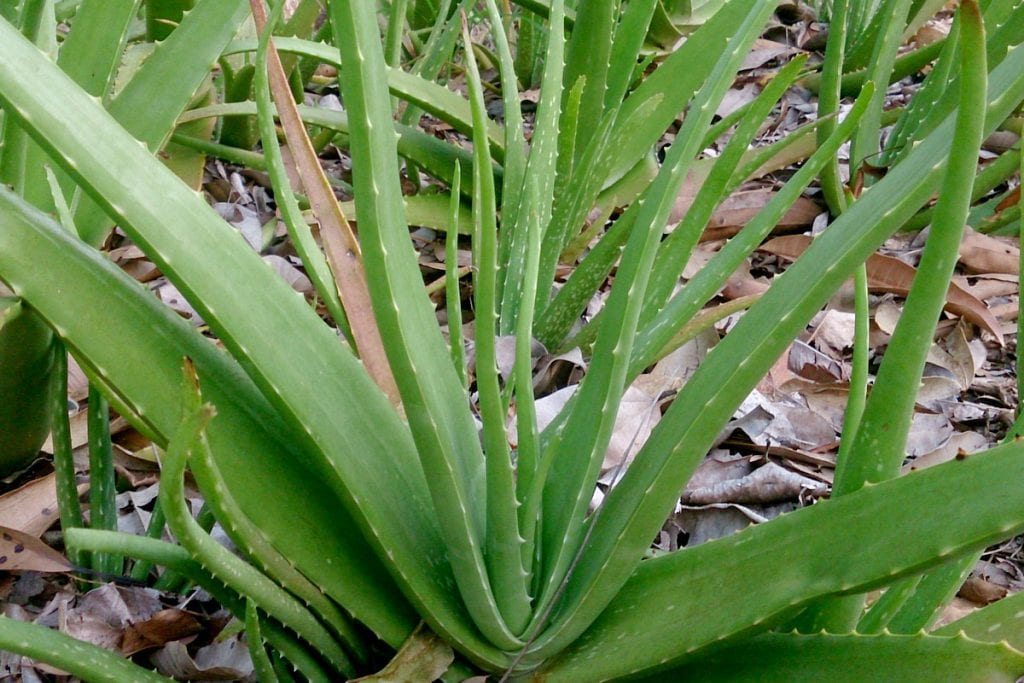
Aloe vera is not less than a boon for the skin. It is a natural antibacterial and anti-inflammatory that reduces the appearance of acne and prevents acne breakouts for sure if used consistently.
Aloe vera contains a good amount of water and is an excellent moisturizer. Thus, it is most suitable for people whose skin gets dry from other anti-acne products.
In a study in 2014, researchers gave aloe vera gel and tretinoin cream to people with mild to moderate acne to use for 8 weeks regularly.
Those participants reported a significant improvement in both the inflammatory and non-inflammatory acne compared to people who were using just tretinoin gel on their skins.
How to use aloe vera gel Try to clean the acne sores and then apply a layer of aloe vera cream or gel with at least 10 % aloe vera content. Or you can moisturize your skin with gels or creams that contain aloe vera.
4. Honey
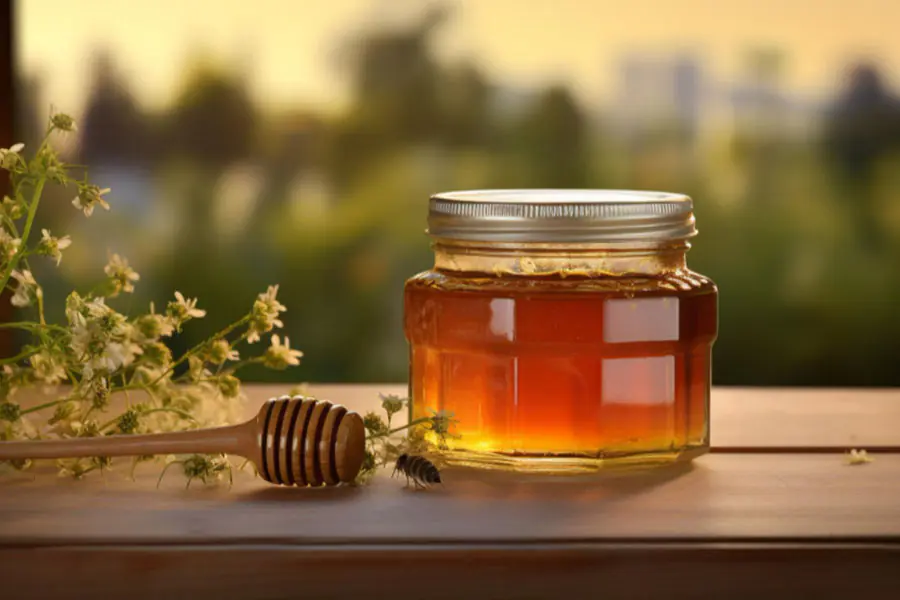
Honey is something that we can say – a single solution to thousands of problems. It has been traditionally used to treat skin conditions, such as acne, dryness for thousands of years. Honey has many antioxidants that may help you to clear waste and debris from the clogged pores. you can buy honey from online.
Even the Doctors use honey in dressing the wounds because of its antibacterial and wound-healing miraculous properties.
How to use honey Use it with a clean finger or cotton pad
Rub a little honey into pimples Or add honey to your face or body mask, it’s always beneficial.
5. Garlic
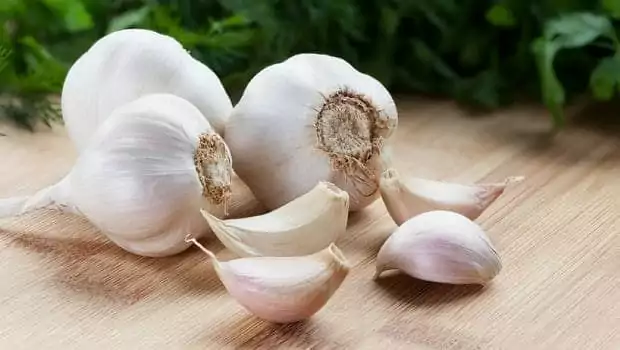
Garlic is not only meant for adding flavours to food but used as traditional medicine for ages. Though, it’s considered superb in building the immune system to boost the body’s ability to fight germs and infections. It is even used by many traditional medicine practitioners to treat infections also.
Garlic contains organosulfur compounds that have natural antibacterial and anti-inflammatory qualities. Organosulfur compounds also help in boosting the immune system, fighting germs, making skin healthier and infection free.
How to use garlic?
Try to add more garlic to your diet to fight the inflammation and infections caused by acne. You can chew whole garlic cloves, roast it, rub it on toast, or take it as a hot drink.
You can also buy garlic powders or capsules if unable to consume directly. You can easily find it in your kitchen.
Try not to apply garlic directly to the pimples, as it can cause further skin irritation and itching. It can either burn the skin, so use it carefully.
6. Green tea
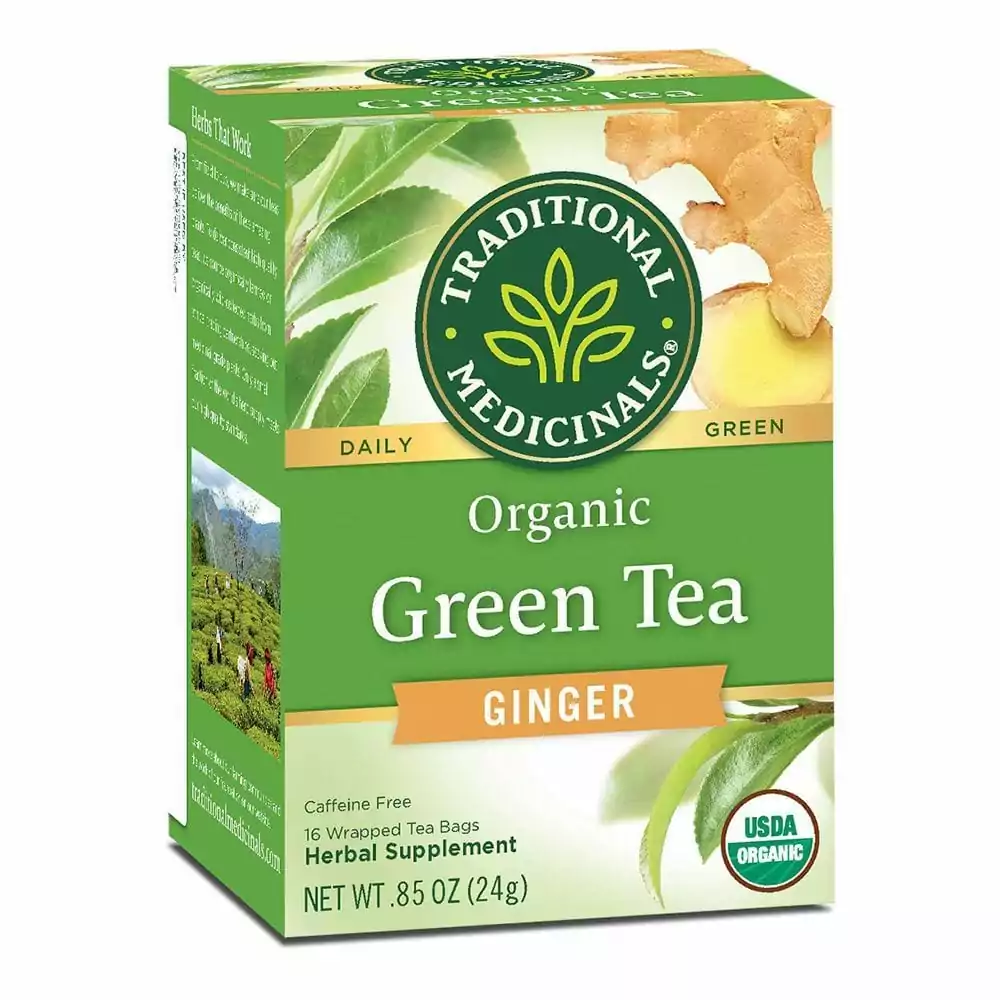
Green tea consists of high concentrations of polyphenol antioxidants called catechins.
Most people with acne, have too much sebum, or natural body oils in their pores but not enough antioxidants.
These Antioxidants will help your body break down the chemicals and waste products that can damage your healthy cells. Green tea helps in clearing out the debris and waste that has automatically up in open acne sores.
Green tea also contains compounds that are helpful for:
· reducing the skin’s sebum production
· reducing P. acnes
· reducing the inflammation
Green tea also helps when you drink it or use green tea extract on your skin. A study found a 79 and 89 percent reduction in whiteheads and blackheads is witnessed after 8 weeks of using polyphenol green tea extract.
How to use green tea?
First of all, remove the leaves from one or two tea bags
Moisten them with warm water.
Mix these leaves with honey or aloe vera gel.
Spread the mixture gently on acne-prone areas of your face.
Leave the mask kept on for 10 to 20 minutes.
7. Echinacea
Echinacea is also known as the purple coneflower. It contains compounds that may help in destroying viruses and bacteria, including the P. acnes.
It is believed that Echinacea may boost the immune system and efficiently reduce inflammation. You can use it to fight off or prevent infections, even including colds and flu too.
How to use Echinacea?
You can apply products like creams containing Echinacea to areas where you have acne lesions or either you can take Echinacea supplements.
Echinacea products are easily available from health stores as creams and supplements.
8. Rosemary
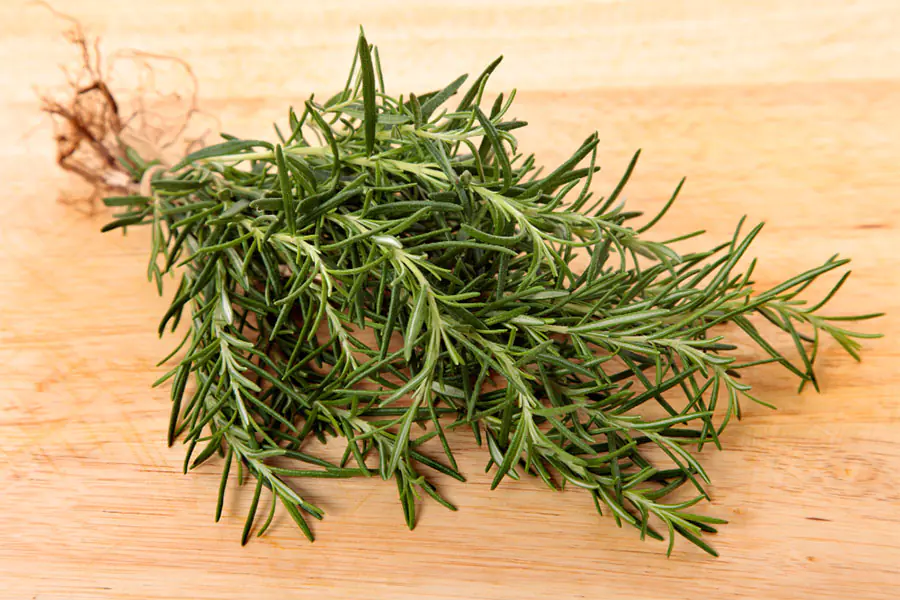
The application of rosemary oil on the face is known for reducing the inflammation caused by acne due to its antibacterial qualities. It also helps you to reduce undereye puffiness and improves blood circulation, giving you glowing and healthy skin. Rosemary helps you fight sun damage and signs of aging.
Rosemary extract or Rosmarinus officinalis consists of chemicals and compounds rich in antibacterial, antioxidant, and anti-inflammatory properties.
A study in 2013, on mice models and human cells, states that rosemary extract may reduce inflammation from acne-causing bacteria P. acnes.
How to Use Rosemary?
Use this Rosemary mix to refresh your dry, irritated and inflamed skin.
Add 1 tbsp of aloe vera gel in a bowl.
Mix in a few drops of rosemary oil using a spoon.
Gently apply this gel by spreading a layer over the face with clean fingers.
Leave this rosemary blend on the face for 10-15 minutes before rinsing it off.
Use this mix daily for the best results.
9. Purified bee venom
Bee venom is a colorless, odorless, acidic liquid. It’s excreted through the stingers by Bees into a target when they feel threatened.
The interesting fact about it is – it contains both anti-inflammatory and inflammatory compounds that include enzymes, minerals, sugars, and amino acids. Melittin is a compound that consists of 26 amino acids that comprise about 50% of the dry weight of the venom itself. It has some antibacterial, antiviral, and anticancer effects.
Researchers have found that purified bee venom can destroy P. acnes bacteria at its most. As per some studies, people who used cosmetics containing purified bee venom for almost 2 weeks witnessed improvements in the number of acne lesions.
Applying a gel containing purified bee venom to their face for 6 weeks also reduces from mild to moderate acne lesions.
How to use Purified Bee Venom?
The bee venom is used in a variety of ways and available in many forms. For instance, it’s added to products like extracts, moisturizers, serums, and supplements.
You can easily purchase bee-venom in the form of products such as lotions, moisturizers, and lozenges, both online or offline.
Meanwhile, bee-venom injections are also administered by healthcare professionals only.
10. Coconut oil
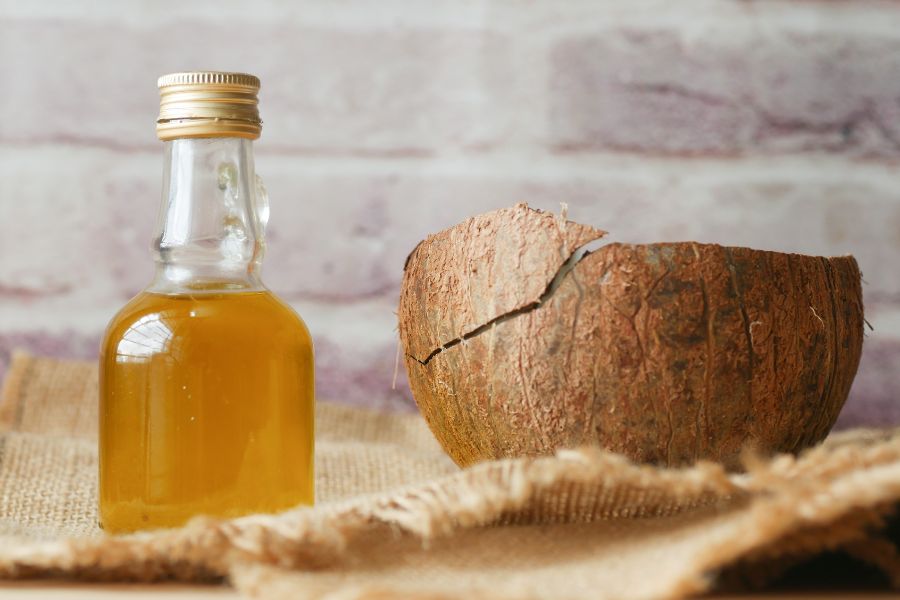
Like any other natural remedies, coconut oil also contains antibacterial and anti-inflammatory compounds.
It works as a blessing on the skin. Coconut oil is rich in many of the free fatty acids, specifically lauric acid.
Lauric acid contains natural antimicrobial properties that can kill Propionibacterium acnes or P. acnes, the main bacteria responsible for causing acne.
With these healing properties, coconut oil destroys acne-causing bacteria and directly reduces redness and swelling of pimples on your beautiful face. The coconut oil also speeds up the healing of open acne sores.
How to use coconut oil?
Try to rub pure and virgin coconut oil directly on the acne affected area. Coconut oil is easily available in the natural food sections of grocery stores or you can buy it online.
· Choose an Organic and Virgin Coconut Oil
· Liquefy the coconut oil before use
· Massage the coconut oil on your face
· Now wash off the coconut oil with a mild facial cleanser
· Or it’s better to leave it overnight
Lifestyle changes for acne
Along with these home remedies for acne, some specific lifestyle changes can make a powerful impact on keeping your body healthy, making the skin glowing and less oily, and subsequently reducing acne flare-ups.
Lifestyle changes to be adopted to improve acne are:
11. Never touching pimples
Most of us have witnessed that it’s very tempting, but touching acne sores will irritate the skin and can make those pimples even worse. Also can spread the pimples to other areas.
Touching, squeezing, popping, or rubbing acne sores can encounter more bacteria into the lesion which may cause further infections.
Squeezing your pimple eventually pushes bacteria and debris into the skin, making acne worse than they were before.
Consult a doctor about large sores or those which are deep under the skin to know how to remove them safely.
12. Choosing the right cleanser
Generally, most regular soaps have high acidity or pH that can irritate the skin and cause pain, making the acne worse.
Try to choose cleansers, washes, and rinses, with a pH similar to the skin’s natural pH of around 5.5 to lessen the risk of acne flare-ups and let sores heal up.
13. Using oil-free skincare
Oil-based or greasy products are the main factors responsible for acne because they can block pores, increasing the risk of clogging them and forming acne sores.
Try to look for skincare products and cosmetics that label as ‘oil-free’ or ‘non-comedogenic,’ that contain ingredients that allow pores to breathe easily.
14. Staying hydrated
Staying hydrated is extremely crucial not only for acne but complete body functionality and immune system. Staying hydrated makes it easier for acne sores to heal and subsequently reduces the overall risk of acne outbreaks.
When your skin gets dry, it can easily become damaged and irritated, resulting in pimples. Being hydrated ensures the correct development of new skin cells as sores heal.
There is no standard recommendation for water intake because every person’s water needs vary. That depends on age, activeness, temperature, and medical conditions.
Most health authorities recommend drinking six to eight 8-ounce glasses of fluid on a daily basis.
15. Reducing stress
A study of Dermatology stats that stress is a possible cause of acne flare-ups.
Stress increases the levels of the hormone androgen. This Androgen stimulates hair follicles and oil glands and pores, increasing the risk of acne occurring.
Tips for managing stress include:
· Talk to friends, family, a doctor, or some supportive people
· Get enough sleep
· Eat a healthful, balanced diet and avoid skipping the meals
· Exercise regularly
· Limit caffeine and alcohol consumption
· Practice deep breathing, yoga, meditation, or mindfulness.
When to see a doctor for ance?
Not every acne condition can be cured at home. In some cases, the problem is critical or unbearable. One should talk to their doctor if their acne sores are:
· very painful
· often infected
· deep under the skin
· covering a large area of skin
· causing emotional distress
· not responding to home treatment
What is good for acne scars and dark spots home remedies?
- Tea tree oil
- Coconut oil.
- Aloe vera gel.
- Honey.
- Purified bee venom


